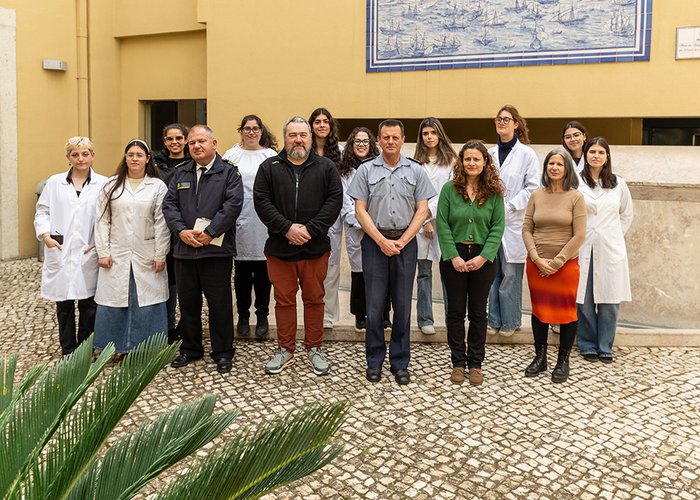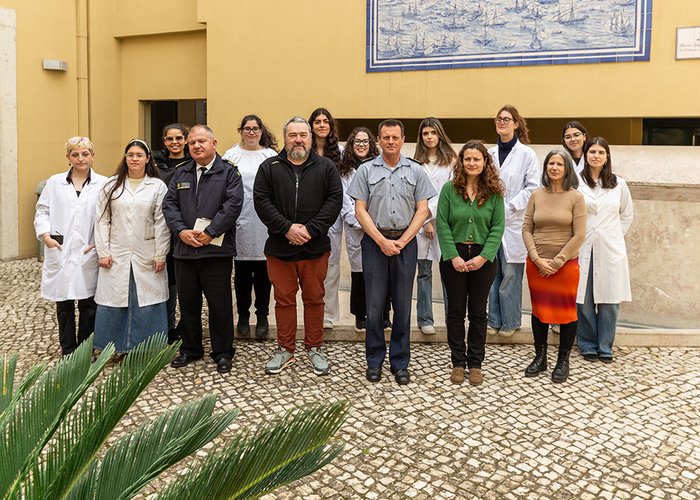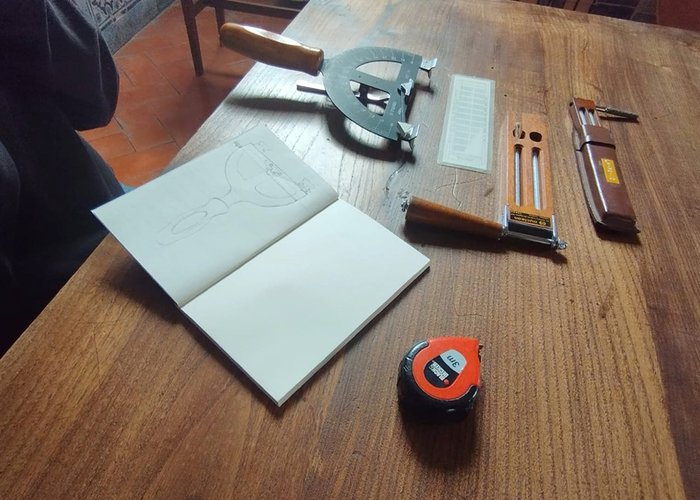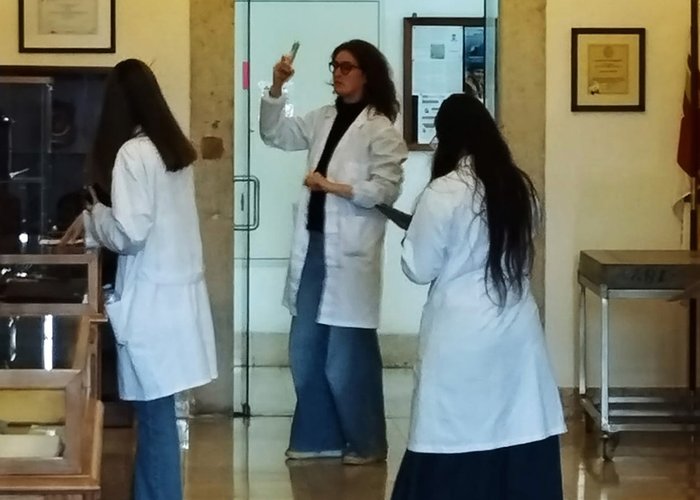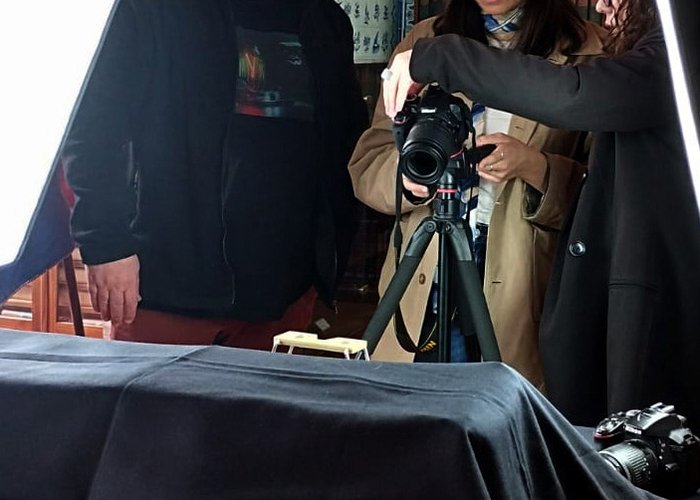Kick-off of the cooperation protocol between the Faculty of Fine Arts and the Hydrographic Institute
On March 22nd, the first action under the Cooperation Protocol between the Hydrographic Institute (IH) and the Faculty of Fine Arts of the University of Lisbon (FBAUL), signed in December 2023, took place.
This action took the form of a Conservation and Restoration workshop, held as part of the studies on "Materials, Techniques, and Diagnosis of Cultural Heritage", with students from the Bachelor's and Master's degree programs in Art and Heritage Sciences. The workshop was divided into two sessions under the guidance of assistant professors from the Department of Art and Heritage Sciences, Ana Bailão and Frederico Henriques.
In the morning, based on a "Heritage Insert Route" produced by the Documentation and Culture Division of the IH, the students carried out basic tracking work on the physical and environmental conditions of the building of the former Trinas Convent, in the various spaces and compartments where the collections of baroque tiles and technical-scientific artifacts of the IH are distributed. Data on temperature, humidity, and luminosity parameters were collected for the preparation of an assessment report.
In the afternoon, with the collaboration of Professor Frederico Henriques, responsible for the Multimedia Laboratory, assisted by monitor Inês Simões, a mobile drawing and photogrammetry workshop was set up in the IH library. The program consisted of drawing and photographically documenting a set of hydrography, navigation, and cartographic drawing equipment belonging to the Institute's heritage, selected for their formal and structural simplicity: pantograph compasses, stereoscopes, psychrometers, clinometers, were some of the instruments adopted for analysis and graphic recording, preliminary operations to the construction of an information system specific to each object. This was followed by photogrammetric processing of the instruments, necessary for subsequent treatment by 3D modeling software.
The first Conservation and Restoration workshop also allowed for the exchange of academic documentation on the identification of plastics, their typologies, and nomenclatures ("polymer identification diagram", among others), relevant information for the understanding and characterization of technological artifacts from the Marine Sciences, a domain in which equipment is largely made up of plastics and compounds (as well as metals and chemicals) whose identification and conservation are often difficult, if not impossible.
From this first cooperation session between FBAUL and IH, an updated reflection on conservation practices is expected to emerge, which may lead to the renewal of knowledge, fundamentally to support decision-making regarding the management of IH's mobile, built, and embedded heritage, and its physical conditions, particularly regarding the extensive 18th-century tile collections of the Institute. In this regard, a second initiative with the Department of Art and Heritage Sciences of FBA is already planned, this time focusing on the possibilities of specific conservation and restoration interventions for tiles.


